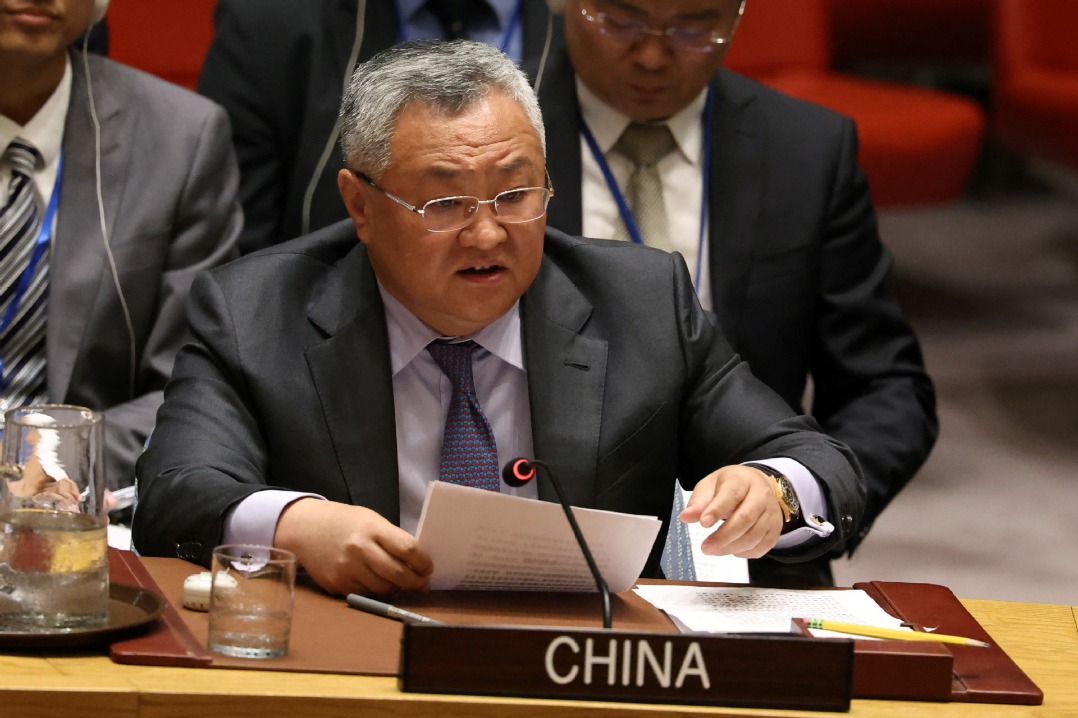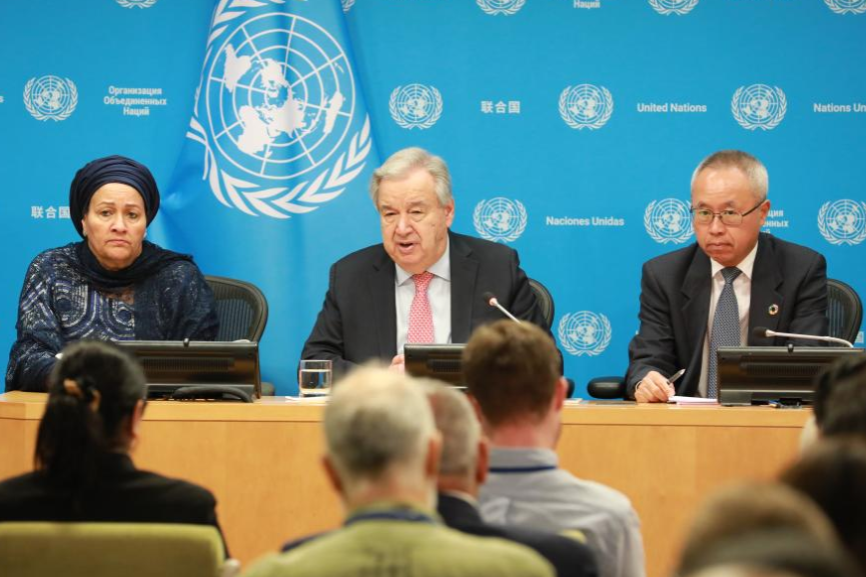Nation's H1 trade data points to resilience


In the tumultuous theater of global commerce, China's trade figures for the first half of 2025 offer more than just a statistical snapshot — they reflect a measured testament to adaptation and endurance in the face of multiplying external pressures.
According to newly released customs data, China's total import and export of goods rose to 21.79 trillion yuan ($3.04 trillion) in the first six months, marking a modest yet notable year-on-year increase of 2.9 percent.
At first glance, a single-digit rise may seem unremarkable for an economy accustomed to double-digit leaps. But a closer look at the intricate balancing act behind these numbers reveals a story of recalibration under pressure, especially as frictions with its largest trading partner — the United States — continue to disrupt shipping routes and tariff ledgers.
Exports, the lifeblood of China's global trade posture, rose 7.2 percent in yuan-denominated terms over the first six months, a performance that exceeded cautious market expectations. More tellingly, June alone saw outbound shipments jump 5.8 percent in dollar terms compared with the previous year — surpassing economists' forecasts and defying the narrative of inevitable export fatigue.
This export uptick is neither accidental nor entirely organic. Beijing's exporters have proven to be adept at redirecting their goods toward markets less encumbered by the mercurial whims of US trade policy. With exports to the US plummeting over 16 percent last month — the third consecutive monthly decline — Chinese firms have pivoted with notable speed. Shipments to Southeast Asia have surged 16.8 percent, while those to the European Union rose 7.6 percent year-on-year.
This geographic rebalancing is part improvisation, part necessity. For much of the year, Chinese exporters have raced against the clock to front-load shipments before each new tariff threat took hold. The tentative trade ceasefire between Beijing and Washington, struck in May in Geneva, Switzerland and revived last month in London, the United Kingdom, offered some respite. But with a looming Aug 12 deadline to hammer out a durable deal, the specter of reimposed tariffs exceeding 100 percent hangs over exporters like a dark cloud refusing to drift away.
Indeed, the US administration's revived protectionist impulses have found new, more circuitous targets. The 40 percent tariff on goods transshipped through Vietnam — a well-worn detour for Chinese manufacturers to skirt direct US levies — is but one example of Washington's resolve to close perceived loopholes in rounding up to China. And if the White House's plan about slapping a 10 percent charge on imports from BRICS nations is translated into policy, the perimeter of the trade battlefield will only expand further.
Still, Beijing is not without leverage. The carefully calibrated resumption of rare earth exports — up 32 percent in June from the previous month — signals China's readiness to counter trade offensives in the larger geopolitical contest. The Geneva truce and the London framework were not born of sentiment but of hard pragmatism: a mutual recognition that a complete trade rupture would impose an untenable cost on both economies, with ripple effects far beyond the Pacific.
For now, Washington and Beijing have little choice but to honor the consensus their negotiators have inked — however fragile it may be. As China's deputy customs chief Wang Lingjun noted earlier this week, both sides are "accelerating to implement the agreed terms". His words mirror US Secretary of State Marco Rubio's recent characterization of bilateral talks as "constructive and pragmatic". Such language hints at an understanding that the cost of failure far outweighs any domestic political dividends the US might reap from restarting a tariff war.
Optimism, however, is tempered by reality. The US administration's habit of using tariff threats as leverage — whether against Beijing directly or through others like Vietnam — remains a wild card. So too does the EU's growing concern about China's industrial heft.
For China's exporters, these swirling crosswinds are unlikely to dissipate overnight. The resilience on display so far is as much about nimble logistics and market agility as it is about State-level diplomacy. It also reflects a recognition that, in a world where trade routes can be redrawn overnight and tariffs weaponized at will, adaptability is not merely an advantage — it is a survival strategy.
As key dates in August approach, people have to wonder: Will the fragile calm hold, or will old grievances and new provocations tip both giants back toward escalation? The answer will ripple far beyond the customs warehouses of Shanghai and the gantry cranes of Qingdao, in East China's Shandong province. For now, China's exporters are playing the only game they can: move fast, look sideways, and brace for the next storm that may already be gathering on the horizon.
The author is an international affairs commentator and freelancer based in Karachi, Pakistan.































